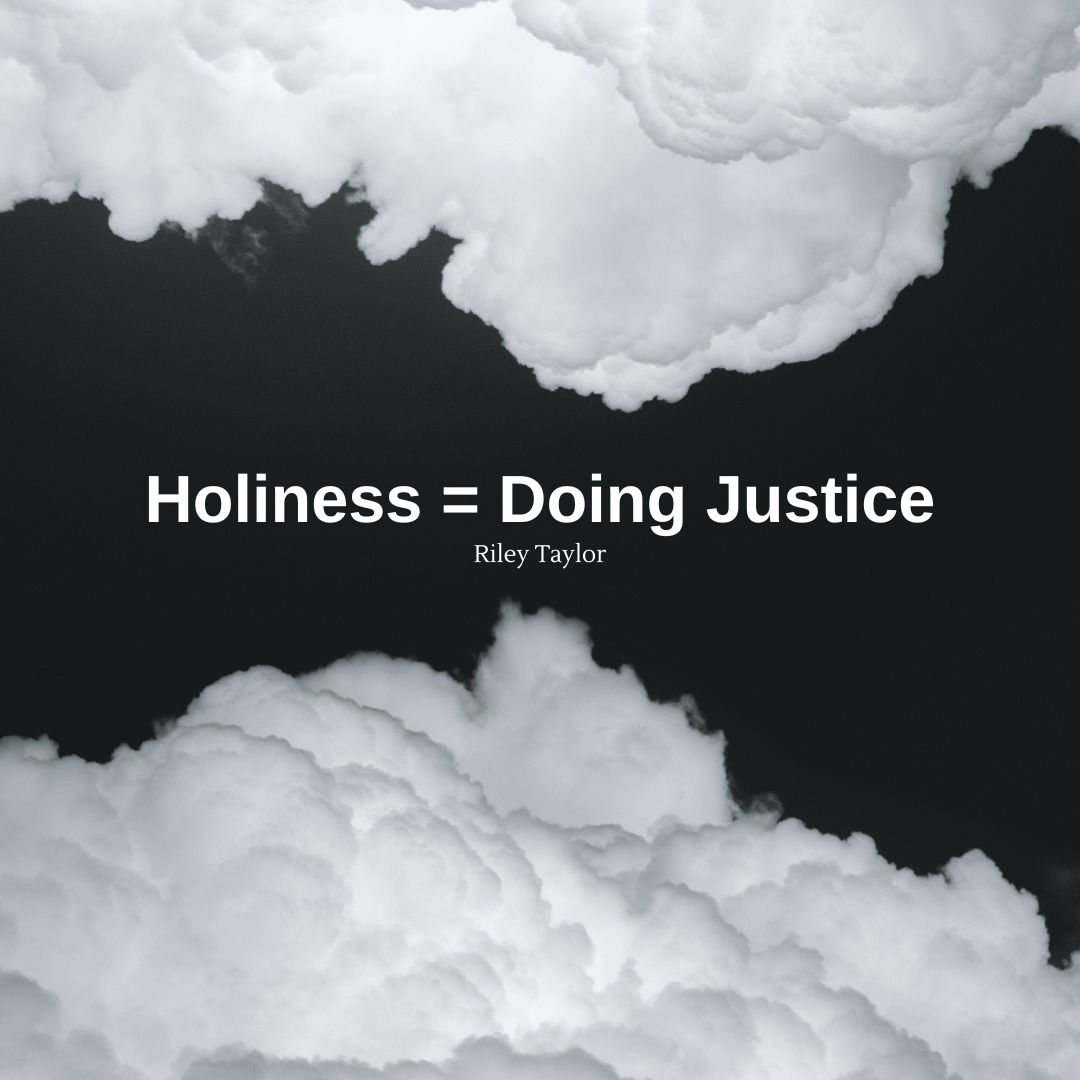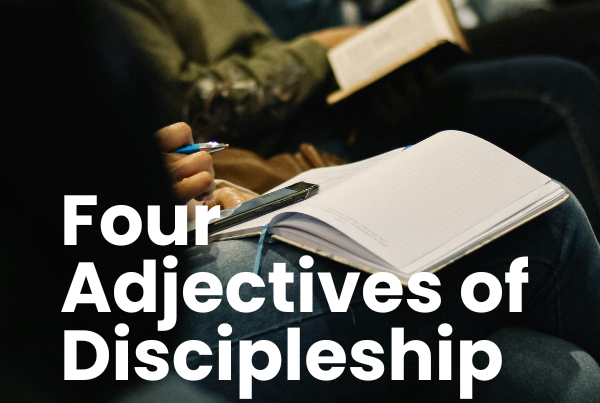
I’m an optimist. Which might surprise people who think I’m a Seattle-type emo cynic who listens to obscure music and watches depressing movies all the time.
That’s … actually pretty accurate.
But what I mean is that I believe optimism is the right way to see the world. “Up and to the right,” you might say. Not in the sense that everything works out or ends happily; there’s plenty of suffering to be sure. I mean, in the end, God will have the last word and his kingdom will conquer all other kingdoms in spectacular victory (Rev. 11:15).
I believe Jesus is an optimist too. When he sees a sinner, he says, “Arise and follow me” and “Go and sin no more.” That’s pretty optimistic, especially in some of the cases such as the woman caught in adultery and Matthew the Tax Collector.
Putting My Faith in God: What’s Change Got To Do With It?
Of course, not everyone agrees with me here. Some people in our culture have claimed that the Bible’s calls to repentance, righteousness, and holiness are not optimistic, but are in fact pessimistic—repressive, or even dangerous. They say, “You don’t need to change at all. You’re fine the way you are.”
Let me point something out. “You’re fine the way you are” is by definition pessimistic.
Optimism says change is possible, improvement is necessary, and getting better is worth it in the end. It’s a pessimistic and hopeless culture that claims that “not changing” is good news. But the word of God contains limitless optimism.
And the most optimistic statement in the Bible is found in Leviticus.
Yep, Leviticus 19:2, which says, “Be holy, for I YHWH your God am holy.”
Here we see the Creator God, holy and righteous and good, saying that you can be set apart, “just like me.” Sarah Morrison writes,
[Holiness] means that even though we are born sinful, we can change and share in God’s holiness through our relationship with Jesus! Being able to change is an important part of having a relationship with God, and every day we are called to make ourselves more like Christ than the day before.[1]
When we put our faith in God as ancient Israel is doing throughout the book of Leviticus, we start to see changes happen in our life. These changes happen in two broad spheres of life.
Seeing Change in My Life in the Sphere of Personal Righteousness
The first is the area of personal righteousness. Throughout Leviticus, God’s people are taught to keep his commandments, seek God on the Sabbath, not go after idols, and cultivate a godly environment in the home. These commands help individuals, families, and communities become “holy”—set apart and dedicated to the Lord. I’m one of those rare Bible teachers that sees grace everywhere, even in the Torah—even in Leviticus!
As God’s people increase in holiness, they increase in happiness, knowing that they’re doing exactly what they’re born to do: fulfilling God’s purpose for humanity, and pointing others toward the renewing power of God’s grace. Peter picks up on this same idea when he encourages believers to be holy. The result is sincere brotherly love and unshakeable hope (1 Pet. 1:13-25).
Seeing Change in My Life in the Sphere of Public Justice
The second sphere of change is in public justice. As Leviticus 19 goes on, God’s commands take on a social dimension. Holiness in Israel means protecting poor people (v. 10); punishing thievery and libel (v. 12); helping disabled people (v. 14); maintaining fairness in courts (v. 15); and ensuring due process for crime (v. 18). Five times across these laws God reiterates, “I am YHWH.” Everything about the way Israel functions as a society is rooted in the character of God. Because he is holy, they’re to put in place laws that provide well-being for the poor, fair outcomes in courts, living wages for the poor, and hospitable treatment of immigrants. As God’s people become holy, the whole nation feels its blessed affect, together.
Students of the Bible know that the words for “righteousness” and “justice” are interchangeable. In Hebrew, mishpatand tzedakah are exchanged to describe both one person’s conduct and the collective righteousness of the group. We are only as just as a society as each of us are as individuals. Fleming Rutledge explains the connections in the biblical worldview:
The English words “righteousness” and “justice” sound nothing like one other. However, these two words, “justice” and “righteousness,” not semantically connected in English, are the same word-group in the Hebrew of the Old Testament and in the Greek of the New. Indeed, if one looks up “justice” in a dictionary of the Bible, one will be referred to “righteousness.”[2]
Today, we have a hard time thinking of holiness in its social dimension. Especially in a Western, American context, which is notoriously individualistic, we often reject the notion that holiness concerns justice. This is partly to avoid being labeled with the “Left’s” vision of social justice, which is rooted not in biblical holiness but in modern critical theory.
It’s also because we prize our individual rights and the potential for upward mobility based on hard work and merit.
While those hard-won liberties are something to be grateful for, we shouldn’t let them mask God’s invitation to social change. Embodied love for others—even enemies—is central to Jesus’ teaching, which ends in a paraphrase from Leviticus: “You therefore must be perfect, as your heavenly Father is perfect” (see Matt. 5:48). Let’s not let critical theorists rob us of the Bible’s vision for true justice.
Putting My Faith in God: How Does My Being Changed Impact Others?
We can’t talk about Leviticus 19 without noticing one of the most famous verses in the Bible, and one oft-quoted by Jesus himself: “You shall love your neighbor as yourself” (v. 18). When we trace the laws of Leviticus out to the ethics of the New Testament and the global people of God, we can come to an optimistic conclusion that sounds simple in concept, but is shocking in execution.
God doesn’t just want to change you; he wants to use you to change others. That’s real holiness. Starting with personal righteousness such as worship, sexual purity, studying the Scripture, and prayer. That’s where holiness begins in us. Where holiness goes from there moves us into the realm of public justice—how we treat others. “Love your neighbor as yourself” is holiness.
It’s caring about the hurting, providing for the needy, and advocating for those who cannot fight for themselves, such as the unborn and the refugee. A gospel which says “Go and be warmed and filled” without practical help isn’t optimism but pessimism (see James 2:8-17).
Church, let’s reclaim justice in its practical biblical context, ache for the vision of justice that will arrive with Jesus’ second coming, and along the way, learn to “be holy as he is holy.” Now that’s optimism at its finest.
____________________________________________________________________________________________________
References
[1] Sarah Morrison, The Character of God.
[2] Fleming Rutledge, The Crucifixion: Understanding the Death of Jesus Christ (Grand Rapids, MI: Eerdmans Publishing, 2017).










